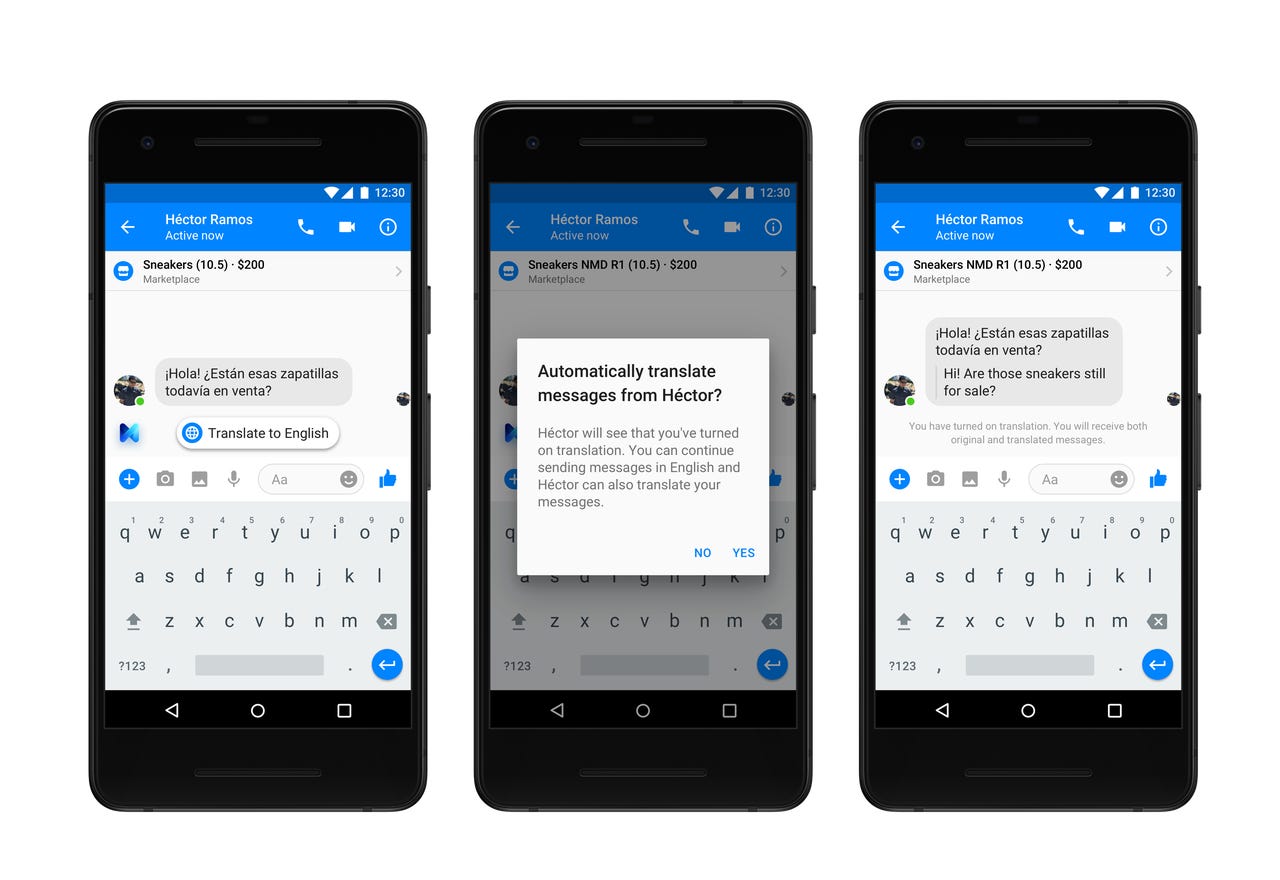Facebook tries to lure more businesses to Messenger with AR, AI capabilities

In two years, Facebook has turned Messenger into a thriving commercial hub. There are now more than 300,000 active bots on the platform, and 200,000 developers building on it, Facebook said Tuesday. More than 8 billion messages are exchanged between people and businesses each month -- four times the number of messages exchanged a year ago, when Facebook committed to making the platform the "the yellow pages of messaging."
Also: Mark Zuckerberg's plea to developers at F8: Keep building with us
At the F8 developer conference on Tuesday, Facebook announced its latest efforts to turn Messenger into a sleek platform for businesses, this time adding augmented reality (AR) and artificial intelligence (AI) to the service.
The news comes as WhatsApp -- Facebook's other, more popular messaging platform -- continues to struggle with balancing monetization efforts with its stronger commitment to user privacy.
Yet on Messenger, efforts to work with businesses and brands are just getting started, Facebook said in a blog post announcing the new features.

First, Facebook on Tuesday announced that buyers and sellers on Marketplace, its hyperlocal e-commerce portal, will be able to communicate across languages on Messenger with the help of M, Facebook's AI-powered digital assistant. Facebook rolled out M in Messenger with limited functionality last year.
Now, when someone in Marketplace receives a message in a language that's different from their default language in Messenger, M will offer to translate the message. At launch, Messenger will offer translations from English to Spanish, and vice-versa, in conversations taking place in the United States. The feature will be rolled out in the US gradually over the coming weeks, and Facebook will continue to add languages and countries.
Facebook also announced it's giving brands the ability to incorporate AR into Messenger, leveraging the Camera Effects Platform. Once a business interacts with a person on Messenger, the business can prompt the user to open the Facebook camera, which will be pre-populated with brand-specific filters and AR effects. From there, brands can encourage customers to share the images they create with friends to get feedback on their potential purchases.
The feature is launching in closed beta, and Facebook announced a handful of major brands using it: ASUS, Kia, Nike and Sephora. ASUS will use it to give customers a closer look at phone features and functionalities. Kia will use it to let people try customizing the Kia Stinger. Nike is using it to give customers a sneak peek at new sneakers, and Sephora will use it to let customers "try on" make up.
Communication on Messenger is increasingly visual, Facebook continues to point out. The platform hosted 17 billion video chats in 2017, twice as many as compared to 2016. Last month, the company announced it's adding support for 360 degree photos, panoramic photos, and HD video to Messenger. On the back end, Facebook has been growing its data center footprint and building the infrastructure it needs to accommodate more immersive content, such as live video, 360 photos and AR and VR.
The feature is part of AR Studio, a tool for building interactive experiences for the Facebook camera.
Facebook on Tuesday also announced it's updating AR Studio with new capabilities, including visual programming that lets you drag-and-drop custom animations and logic into a scene without writing any JavaScript.
Facebook also now has a partnership with Sketchfab, providing access to a library of downloadable models that can be added to AR Studio projects. In the near future, users will be able to add custom libraries to AR Studio with a JS library API.
Facebook is partnering with Sketchfab.
Other new capabilities include new tracking capabilities (body tracking, hand tracking and high-fidelity face tracking), as well as background segmentation to separate people from their background. The updated AR Studio also includes location AR, enabling users to tie AR effects to real-world places, making pre-determined experiences available when people get to a certain location. It also includes semantic scene understanding to create experiences that are contextually aware, such as adding heat waves to the top of a real-world coffee cup.
AR Studio is also expanding beyond Facebook's flagship app so users can distribute content to more platforms. It's launching now in closed beta on Instagram and Messenger and is coming soon to Facebook Lite.